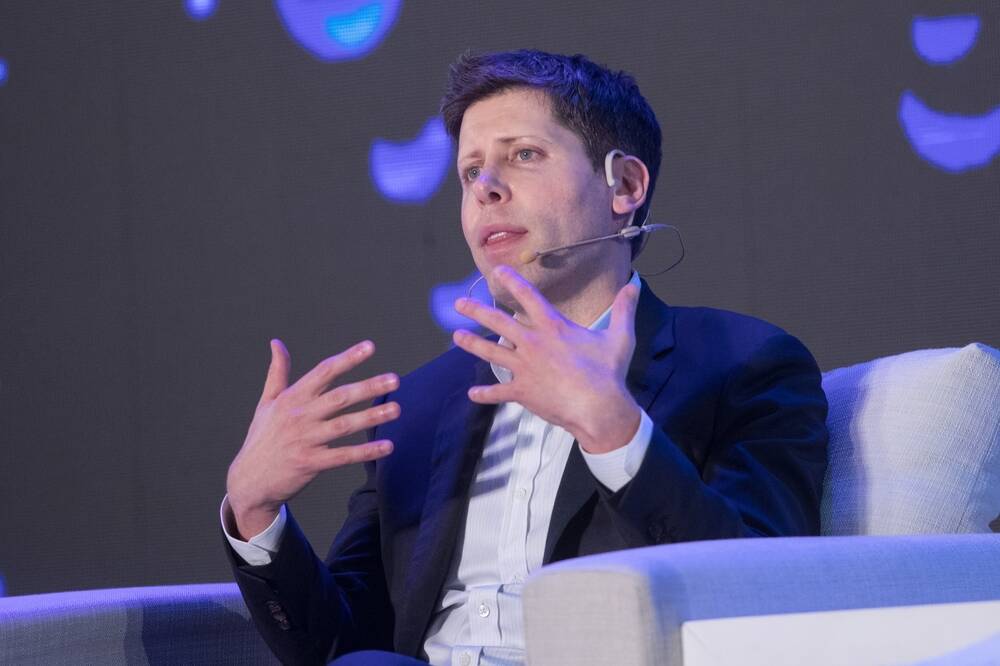Altman Reportedly Asks Biden To Back A Slew Of Multi-gigawatt-scale AI Datacenters

OpenAI CEO Sam Altman is reportedly trying to convince the Biden administration that an enormous network of AI datacenters, each consuming up to five gigawatts of power, is imperative to ensuring US national security and maintaining its technological lead over China.
The proposal, detailed in a document reviewed by Bloomberg this week, outlines the merits of building several such datacenters across the United States. The report comes just weeks after Altman and other tech leaders met at the White House to discuss the proliferation of AI technologies and infrastructure.
Citing executives at Constellation Energy Corp., Bloomberg also reported that Altman may be planning as many as 5-7 such datacenters, but will start with one.
However, building even one of these facilities will be a daunting task. Five gigawatts is an enormous amount of power, with each of these datacenters requiring roughly equivalent to the output of five pressurized water nuclear reactors.
The power stations required to maintain these facilities would be among the largest in the US, second only to the Grand Coulee hydro plant located in Washington state, which has a rated capacity of 6.8 gigawatts.
The next largest plants, Georgia's Alvin W. Vogtle and Arizona's Palo Verde power stations are nuclear with each containing four reactors capable of generating about 4.6 and 3.9 gigawatts, respectively.
What's more, excess capacity is already a limiting factor for many datacenter developments. A CBRE report from late last month found that a shortage of power and the equipment necessary to harness it is leading to delays.
With power in such high demand, cloud providers are already taking extreme measures to ensure they don't fall behind in the AI race. Last week, Microsoft became the latest cloud provider to embrace nuclear power, after it announced a 20 year power purchase agreement with Constellation Energy to bring the 837-megawatt Three Mile Island Unit 1 nuclear power plant back online.
Earlier this year, Amazon cozied up to Talen Energy, which owns and operates the Susquehanna nuclear plant, acquiring its Cumulus datacenter facilities for $650 million. Under the deal Amazon will eventually gain access to up to 960 megawatts of power.
Oracle's founder Larry Ellison is even talking about eventually deploying small modular reactors to fuel the database giant's AI expansion.
Even if the US can overcome the power challenges, there's still the issue of sourcing enough accelerators to fill those datacenters. Assuming a power use effectiveness (PUE) of 1.1, we estimate a five-gigawatt facility could support in excess of 35,000 of Nvidia's Grace-Blackwell NVL72 rack-scale systems — or roughly 2.5 million Blackwell GPUs. Again, this is just speculation to highlight what an undertaking this would be.
On that note, recently the Uptime Institute estimated that Nvidia shipped roughly 600,000 H100s in 2023 and predicted the GPU giant would ship somewhere between 1.5 and 2 million chips this year.
- Microsoft cash to help reignite Three Mile Island atomic plant
- Datacenters bleed watts and cash – all because they're afraid to flip a switch
- Broadcom CEO predicts hyperscalers poised to build million-accelerator clusters
- Oracle wants to power 1GW datacenter with trio of tiny nuclear reactors
Further down the chain, there's no guarantee TSMC would be able to keep up, especially considering how constrained the CoWoS packaging capacity required to build these chips already is, is another matter entirely.
Of course, zany, over-the-top ideas are Altman's signature move. Earlier this year, it was reported that he had floated a $7 trillion project to establish a network of chip factories to fuel his AI ambitions. However, speaking at Intel's Foundry event in February, the OpenAI CEO reminded folks that not everything you read on the internet is true.
So, for all we know, the datacenter plan Altman is reportedly trying to sell the Biden Administration on may simply be an exercise in getting the US government to think about the long-term investments necessary to support AI development going forward.
The Register reached out to OpenAI for comment; we'll let you know if we hear anything back.®
From Chip War To Cloud War: The Next Frontier In Global Tech Competition
The global chip war, characterized by intense competition among nations and corporations for supremacy in semiconductor ... Read more
The High Stakes Of Tech Regulation: Security Risks And Market Dynamics
The influence of tech giants in the global economy continues to grow, raising crucial questions about how to balance sec... Read more
The Tyranny Of Instagram Interiors: Why It's Time To Break Free From Algorithm-Driven Aesthetics
Instagram has become a dominant force in shaping interior design trends, offering a seemingly endless stream of inspirat... Read more
The Data Crunch In AI: Strategies For Sustainability
Exploring solutions to the imminent exhaustion of internet data for AI training.As the artificial intelligence (AI) indu... Read more
Google Abandons Four-Year Effort To Remove Cookies From Chrome Browser
After four years of dedicated effort, Google has decided to abandon its plan to remove third-party cookies from its Chro... Read more
LinkedIn Embraces AI And Gamification To Drive User Engagement And Revenue
In an effort to tackle slowing revenue growth and enhance user engagement, LinkedIn is turning to artificial intelligenc... Read more

